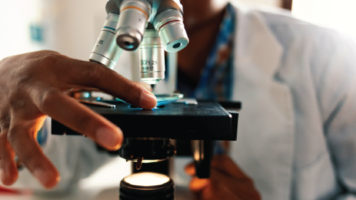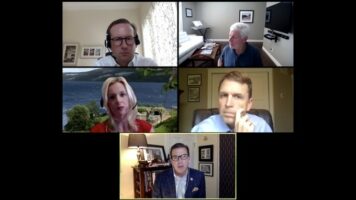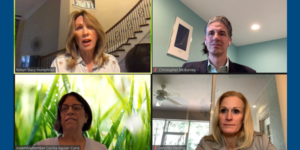Industry News
COVID-19 Vaccine Arrival & CAR T Legislative Webinar |
December 2020
Hope and help are on the way in the fight against the deadly COVID-19 pandemic. Biopharmaceutical companies, Pfizer and Moderna, are each seeking emergency use authorization by the US Food and Drug Administration (FDA) for their novel COVID-19 vaccines.
Dr. Anthony Fauci, Director of the National Institute of Allergy and Infectious Diseases said the first vaccinations in the United States are expected to take place towards the latter part of December. Governor Newsom recently announced that 327,000 doses of the new Pfizer coronavirus vaccine are headed to California in mid-December in anticipation of FDA approval.
Pfizer, along with its partner BioNTech, applied for FDA approval for their COVID-19 vaccine on November 20 with data showing up to 95 percent efficacy in preventing COVID-19 infection. The biopharma company began shipping vaccines to the U.S. last week in expectation of the FDA’s emergency use authorization. On November 30, Moderna became the second company to apply to the FDA for emergency use authorization for their COVID-19 vaccine showing a 94.1 percent efficacy rate in preventing COVID-19 and 100 percent efficacy at preventing severe cases of the disease.
While the two vaccines are not identical, both Pfizer and Moderna use messenger RNA to produce an immune response in the body. The vaccines are given in two doses a few weeks apart. Reported side effects include temporary fever or body aches.
The FDA is scheduled to meet with its Vaccines and Related Biological Products Advisory Committee on December 10 to review Pfizer’s application and on December 17 to review Moderna’s application. Once the FDA grants the vaccine emergency use authorization, an advisory committee to the US Centers for Disease Control and Prevention will make a recommendation about who should get the shots first. That priority group will likely include health care workers, nursing home residents and other at-risk groups. After the CDC issues those recommendations, Americans could get their first dose of the vaccine within a few weeks, most likely by the end of December.
According to Pfizer, 50 million doses of its two-dose regimen will be available by the end of the year — enough to immunize 25 million of the nation’s roughly 331 million people. Moderna expects to have approximately 20 million doses of its vaccine available in the United States by the end of the year, and it is on track to manufacture 500 million to 1 billion doses globally in 2021.
Legislative Webinar on Cancer Fighting CAR T Cell Therapy with Assemblymember Cecilia Aguiar-Curry
Assemblymember Cecilia Aguiar-Curry and the California Biotechnology Foundation (CBF) hosted a legislative webinar on November 12 to discuss the promise of Chimeric Antigen Receptor Therapy (CAR) T in treating certain types of cancers.
Cancer is the second most common cause of death in the U.S., exceeded only by heart disease. More than 1.8 million new cancer cases are expected to be diagnosed in 2020 and approximately 606,520 Americans are expected to die of cancer in 2020, which translates to about 1,660 deaths per day.
CAR T cell therapy represents a novel, customized and incredibly promising cellular immunotherapy approach for treating cancer that takes advantage of unique capabilities of T cells, an important part of our immune system. These T cells—hundreds of billions of which circulate through our bodies at any given time—are capable of recognizing and eliminating cells that have become damaged, infected by viruses, or have turned cancerous.
Some of the CAR T webinar highlights included:
- Joe Panetta, CEO of Biocom California and Founding Chair of CBF discussed the importance of CAR T innovations, which have massive implications for cancer treatment. He also discussed the all-encompassing efforts by California biopharmaceutical companies working to discover therapies like CAR T in the fight against cancer.
- Jennifer Herring, RN, CCRA, Executive Director and Head Clinical Scientists/Cellular Therapy Global Drug Development at Bristol Myers Squibb, provided an overview of the science of CAR T cell therapy explaining that a patient’s own T cells are genetically engineered to recognize and bind to proteins found on the surface of certain cancer cells. She explained that CAR T cell therapies have been shown to improve outcomes for some patients who may otherwise have no other option and represent a significant advancement in the scientific progress of treating cancer.
- Christopher McBurney, Pharm.D., V.P. and Head, U.S. CAR T Franchise of Novartis Oncology, gave a presentation about reimagining cancer care with CAR T and spoke about Novartis’ road to producing CAR T therapies for patients. He emphasized Novartis’ commitment to developing and advocating for these innovative therapies.
- Robyn Stacy-Humphries, M.D., a CAR T patient and cancer survivor, discussed her inspiring journey with CAR T cell therapy for the treatment of her relapsed/refractory large B-cell lymphoma.
For more information, contact Patty Cooper with the California Biotechnology Foundation at 916-764-2434 or [email protected].




